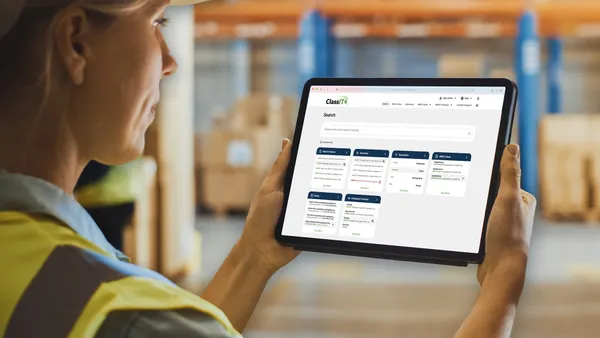Dive Brief:
- In a partnership with Samsung SDS and Dutch bank ABM AMRO, the Port of Rotterdam will test a blockchain system for linking container logistics and payments beginning in January, according to a press release from the port.
- The goal of the pilot will be to integrate "physical, administrative and financial streams within international distribution chains," digitally.
- The pilot will track a container through multiple freight modes from Asia to the Netherlands, and results will be announced in February.
Dive Insight:
The Port of Rotterdam has made moves toward digitization when it comes to safety, climate change and cybersecurity. This pilot is intended to further expand that work to port transactions.
Paul Smits, the Port of Rotterdam Authority’s CFO, explained that currently, payments, administration and the physical movements of the containers are managed through separate, paper-based operations, resulting in inefficiency.
"The transportation, monitoring and financing of freight and services should be just as easy as ordering a book online," Smits said in the release.
With this pilot, the port is testing making the leap from paper to digital records on a blockchain without central administration in one go, while also linking other blockchains to the port's system.
"What is particularly special about the project is that, for the first time in the rather short history of this technology, we can have different blockchains operating together. This takes place via an overarching 'notary' that connects entirely separate blockchains in Korea and the Netherlands," said Sanghun Lee, president of Samsung SDS.
The inclusion of a financial partner ABM AMRO in this latest pilot makes it unique in that it seeks to integrate finance into the ledger along with shipment documentation and physical location of containers.
The Port of Rotterdam is also signed onto the Maersk-IBM blockchain initiative along with at least 94 participants including major players like freight forwarder CEVA Logistics, ocean carrier Pacific International Lines (PIL) and a network of 20 port and terminal operators that span 234 maritime gateways.













